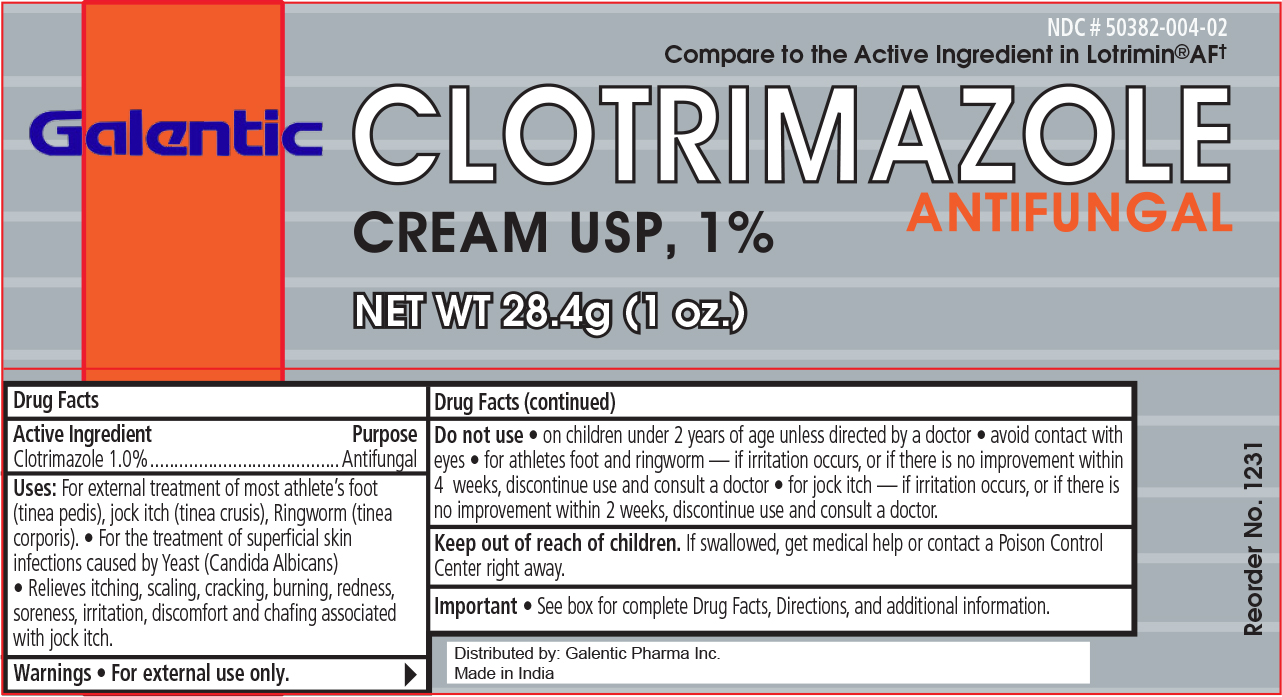Antifungal Cream while Breastfeeding

What is Antifungal Cream used for?
Purpose: For treatment of most athlete's foot (tinea pedis), jock itch (tinea crusis), Ringworm (tinea corporis). For the treatment of superficial skin infections caused by Yeast (Candida Albicans). Relieves itching, scaling, cracking, burning, redness, soreness, irritation discomfort and chafing associated with jock itch.
Is Antifungal Cream usage safe while breastfeeding? If a lactating mother is using it can there be any effect on growth or development of infant?

Antifungal Cream Breastfeeding Analsys
Clotrimazole while Breastfeeding
SafeCAS Number: 23593-75-1
Excretion into breast milk is very unlikely since absorption through skin, vaginal mucosa, and, even intestinal mucosa into plasma is very poor with non-significant plasma levels or below the detection threshold (<10 ng/mL). In addition, because of a high plasma protein binding capacity, excretion into breast milk seems to be less likely. It is used frequently for treatment of Candida infection, either in skin or mouth mucosa, even in newborn and premature infants without observed side-effects. In case of use on the nipple, do it after feeding the baby and cleanse thoroughly the surface before the next one. Do not use creams, gels and other locally applied products that contain paraffin (mineral oil) to prevent absorption by the infant.
Antifungal Cream Breastfeeding Analsys - 2
Clotrimazole while Breastfeeding
CAS Number: 23593-75-1
Because clotrimazole has poor oral bioavailability, it is unlikely to adversely affect the breastfed infant, including topical application to the nipples. It has been used orally in infants with thrush, sometimes successfully after nystatin has failed.[1] Any excess cream or ointment should be removed from the nipples before nursing. Only water-miscible cream or gel products should be applied to the breast because ointments may expose the infant to high levels of mineral paraffins via licking.[2]
What should I do if I am breastfeeding mother and I am already exposed to Antifungal Cream?
As usage of Antifungal Cream is mostly safe while breastfeeding hence there should not be any concern. In case of any change in behavior or health of your baby you should inform your health care provider about usage of Antifungal Cream else no further action is required.
I am nursing mother and my doctor has suggested me to use Antifungal Cream, is it safe?
Definitely, Antifungal Cream is safe in lactation for baby. No wonder your doctor has recommended it.
If I am using Antifungal Cream, will my baby need extra monitoring?
No extra baby monitoring required while mother is using Antifungal Cream
Who can I talk to if I have questions about usage of Antifungal Cream in breastfeeding?
US
National Womens Health and Breastfeeding Helpline: 800-994-9662 (TDD 888-220-5446) 9 a.m. and 6 p.m. ET, Monday through Friday
UK
National Breastfeeding Helpline: 0300-100-0212 9.30am to 9.30pm, daily
Association of Breastfeeding Mothers: 0300-330-5453
La Leche League: 0345-120-2918
The Breastfeeding Network supporter line in Bengali and Sylheti: 0300-456-2421
National Childbirth Trust (NCT): 0300-330-0700
Australia
National Breastfeeding Helpline: 1800-686-268 24 hours a day, 7 days a week
Canada
Telehealth Ontario for breastfeeding: 1-866-797-0000 24 hours a day, 7 days a week
